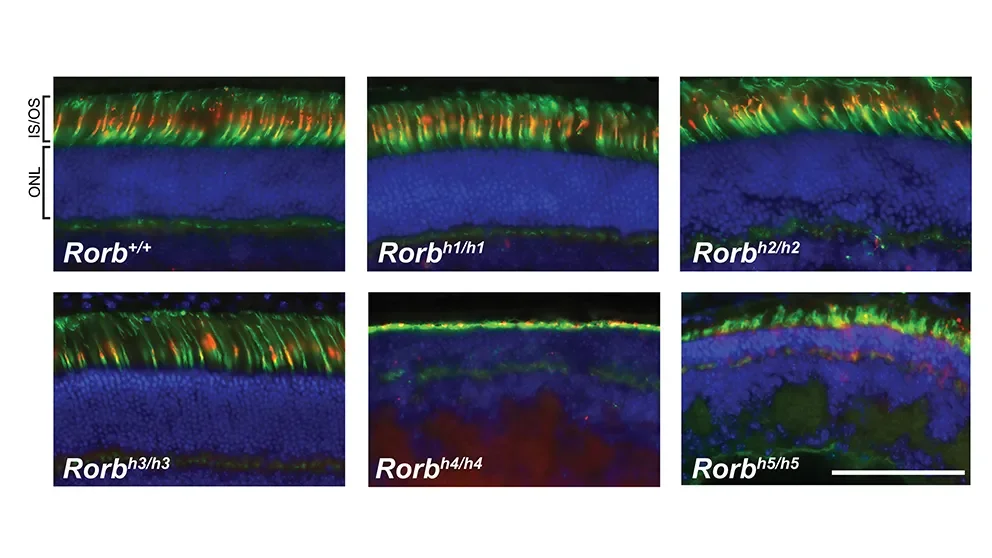Gene loss associated with neurodevelopmental disorders
Research Highlight | July 10, 2023
A recent publication in G3 (Genes, Genomes, Genetics) presents research from Associate Research Scientist Abigail Tadenev, Ph.D., of The Jackson Laboratory (JAX). Tadenev works in the Burgess Lab, which is focused on understanding synaptic connectivity in the nervous system. Tadenev, pre-doctoral associate,George Murray and team evaluated the retinoid-related orphan receptor beta (RORβ) gene and its role in eye development and neurodevelopmental disorders. The RORβ gene produces two main protein structures, or isoforms, one specific to the retina and another present in the central nervous system.
The loss of RORβ in mice leads to malformations in the eye such as disorganized retina layers, postnatal degeneration, and the production of immature cone photoreceptors. RORβ-deficient mice also exhibit a high-stepping gait caused by reduced inhibitory interneuron activity in the spinal cord. How does this translate to people? Human RORβ variants are associated with susceptibility to certain neurodevelopmental conditions, including generalized epilepsies, intellectual disability, bipolar disorder and autism spectrum disorders. The exact mechanisms by which RORβ variants contribute to these disorders in humans remain unclear, but they may involve abnormal neural circuit formation and hyperexcitability during development.
Tadenev and colleagues identified 5 spontaneous RORβ mutant mice strains that exhibited a high-stepping gait. A subset of the strains also exhibited retinal abnormalities and cognition-linked behavioral changes. When analyzing how changes to the RORβ gene impact gene expression, all showed similarities in the unfolded protein response and pathways related to stress on the endoplasmic reticulum, the organelle in charge of protein synthesis, transportation, and folding. Further study of this relationship between RORβ mutations and the unfolding protein response may help explain the involvement of RORβ in the pathophysiology of neurodevelopmental disorders.

